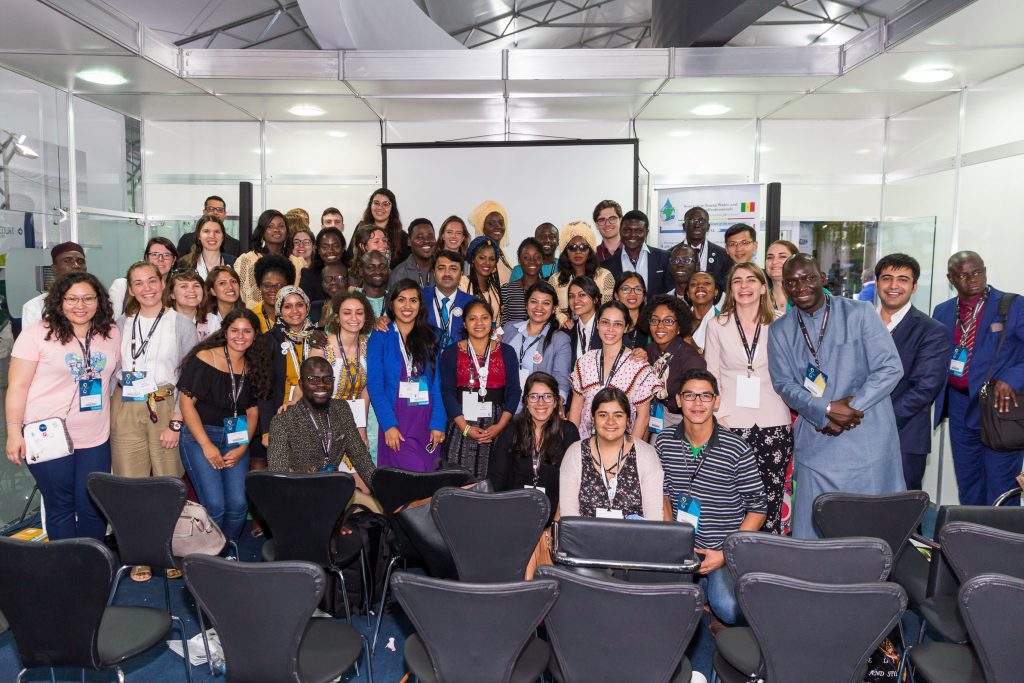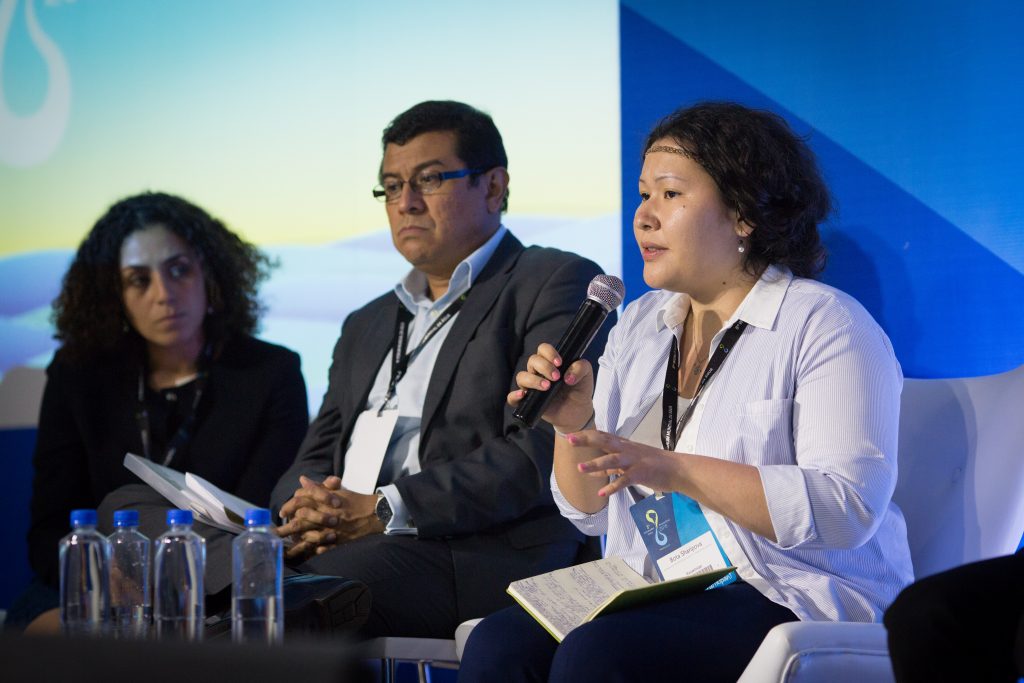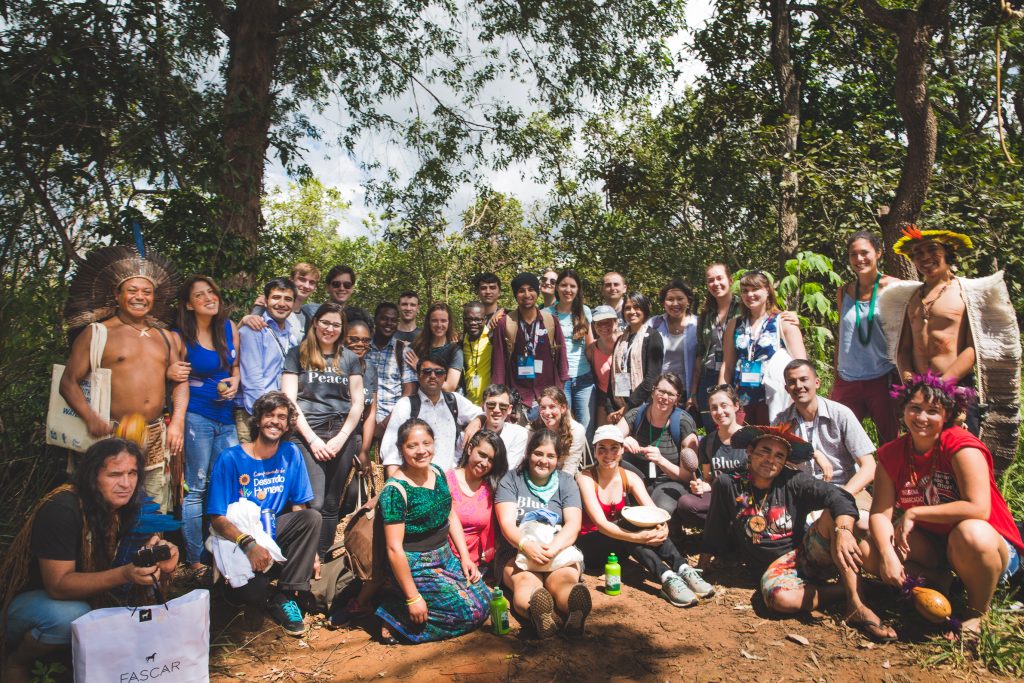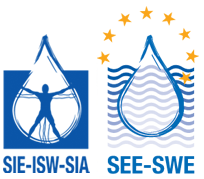Young water leaders from around the world came together to mobilize for action in Brasilia during the World Water Forum.
The 50 youth from 25 countries who gathered in Brasilia showed that they are change makers who are already taking action on local, regional and international levels. During the Forum we saw them mobilize, influence, and persuade decision makers, sharing their messages of combating inequity, and promoting peace and nature-based solutions. They have demonstrated that youth are legitimate stakeholders in the present, with capacity to lead and implement concrete projects. The events and workshops in Brasilia built strong bonds between the participants that will renew the global network of the World Youth Parliament for Water for another three years of spirited advocacy and action.

With their insight, knowledge and dedication, our young parliamentarians showed that they are committed to making a difference locally. They want to share knowledge and advance transboundary cooperation, sharing their insights with the international community. They will play a key role filling the gap between high-level decision makers and local stakeholders, renewing and amplifying citizen voices through many means such as the Blue Peace movement. Youth For Water and Peace, an online platform in cooperation with the Geneva Water Hub, is now in development and is one of many examples of how this vision is already manifesting into action.
YOUTH VOICES AT THE FORUM

The participants intervened at various high-levels and were able to successfully influence decision makers. At the High-Level Panel on Water and Peace, Stephanie Woodworth (Canada) shared her experiences working with the Water Walkers, an Indigenous group in Ontario, with the authors of the High-Level Report. This powerful intervention prompted the 200-strong audience to stand up, and together they spoke an Anish’nabe saying that affirms the vitality of water, and the common imperative to protect and share it.
Bota Sharipova (Kazakhstan) spoke on her experience working with basin councils of Kazakhstan, that grew out of her efforts to save the Aral Sea. Through determination and the support of a Central Asian youth network that grew out of ISW efforts in Astana, youth how have a permanent place at council meetings.
Lindsey Aldaco-Manner (USA) delivered the closing remarks at a panel entitled “Multi-stakeholder Dialogue: Water-Energy-Food Nexus and SDGs Implementation”. “Studying science at university, I learned nothing about how to communicate my ideas in a way that people can understand,” she explained. “I had to learn this on my own time. I ask all of you, do you want to sound smart, or do you want to reach enough people so that you can make a difference?”
SHARING WATER – YOUTH REACTION

The Forum’s theme of Sharing Water resonated with the Parliament’s participants. Many are from current or potential transboundary hot spots. The youth role as stakeholders in these complex puzzles is a challenge that our participants are motivated to take on. The key challenge is ensuring that youth are recognized, and not shut out of decision making or placed in a token role . The 8th Forum’s legacy on this front will likely be seen as mixed, as the Youth Forum was unceremoniously renamed the Junior Forum, with many recommendations not implemented. The enthusiasm for working together on related challenges, however, is undiminished.
Joyce Najm Mendes (Paraguay) spoke at the Blue Peace Talks on the key role of youth in the Blue Peace movement, especially when it comes to transboundary cooperation. She lives at Foz do Iguaçu, a tri-national region on the borders of Brazil, Argentina and Paraguay, where she conducts awareness raising workshops and educational training to mobilize youth. Every day she brings together youth to cooperate in peaceful sharing of water. Her work is a living experiment in transboundary cooperation – in spite of differences, youth speak with a much louder voice when they join together.

AWARENESS AND RECEPTION

The ISW organized activities and workshops to help participants become better and more impactful communicators. A morning-long communication workshop explored the universal relevance of narrative, and how telling compelling, human-centred stories can help build and grow a movement. Working in groups, they chose and shared stories of their own. This lays the foundation for inspiring and memorably communication campaigns that focus on narrative and character, something that is often lacking in facts-heavy, globally-minded communication. Sporadic internet access in the first half did not impede social media posts from reaching an audience over 200,000 people, a large number of whom engaged with and commented on the content. Young journalists produced coverage of the events, resulting in articles, blog posts, videos and a TV appearance on Egypt’s Nile TV.
WHAT COMES NEXT?
The youth are determined to cooperate and collaborate. Coming from a wide array of personal and professional backgrounds – including environment, law, medicine, kinesiology and history, among others – the participants collaborated enthusiastically on key messages and the final declaration. This document commits to focusing on three areas: inequity, peace and environmental protection. Many of the young participants live through these challenges every day, making them ideal advocates.

The innovative concrete projects now underway by several participants are actionable demonstrations of these principles. They represent an alternative approach for projects attuned to local needs, ready to be scaled up and replicated. Marly Julajuj Coj presented her rainwater harvesting project in the Indigenous villages of Guatemala. Jelena Krstajic and Mukti Rahman also gained an appreciative audience for their innovative work on river rehabilitation and empowering female entrepreneurs, respectively. Being recognized as a legitimate stakeholder is always a challenge, but this projects, the envy of many a longtime project planner, show that this status is well-earned for today’s youth.

The participants are hard at work planning and implementing action in their local communities, and preparing the global network for an awareness campaign on water and peace. They are also actively working to connect and communicate with the 35+ Youth Parliaments for Water around the world, and building their movement’s capacity for change. They’re supported in this work by the ISW. We have already seen what they can achieve on the local and international level, and the positive results so far indicate a strong potential for this movement of young water leaders.
More info: List of panel appearances | Photos | Social Media | Articles and blogs

